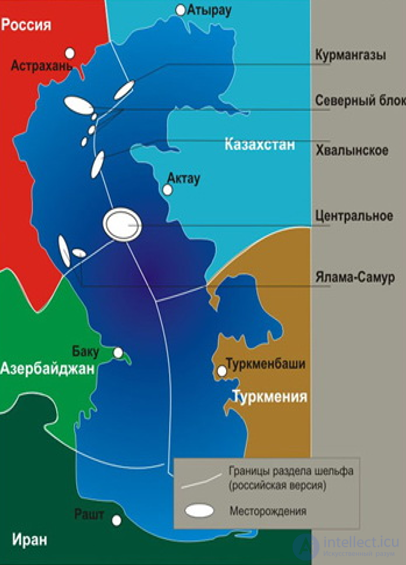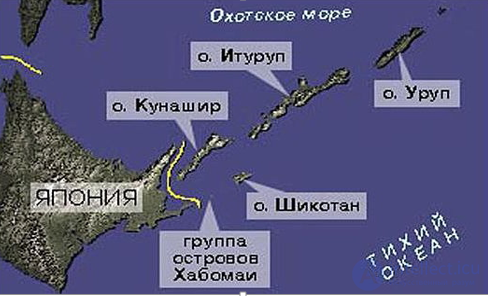Lecture
Russia's strategic adversaries in the international arena include countries and blocs that have opposing interests in security, political influence, and economic impact. Among Russia's main adversaries are the following:
United States of America (USA): The US has historically been Russia's main strategic adversary, especially since the end of the Cold War. American support for Ukraine, the imposition of economic sanctions against Russia, confrontation over control of international organizations (e.g., the UN, OSCE), and the US desire to contain Russian influence in Europe, the Middle East, and other regions make the US an important adversary for Russia.
European Union (EU): The EU and Russia often have opposing interests in geopolitics, human rights, security, and economic policy. Conflicts in Ukraine, sanctions against Russia, and disagreements over energy security and energy supplies also contribute to tensions in EU-Russia relations. In addition, the EU's growing political and economic influence in Eastern Europe and the Balkans is perceived as a threat by Russia.
NATO (North Atlantic Alliance): Russia's most important strategic adversary is NATO, which Russia views as a threat to its influence in Europe and the post-Soviet space. NATO's eastward expansion, the inclusion of former Warsaw Pact and Baltic states, and support for Ukraine and other countries seeking to join the alliance have increased Russia's antagonism toward NATO.
China (long-term competitive issues): Although China is a strategic partner for Russia on many issues, particularly in economics and energy, the two countries may become competitors in the long term, especially over geopolitical influence in Central Asia and the Far East. China is actively increasing its presence in regions traditionally associated with Russia's interests, which may pose long-term threats to Russia's geopolitical position.
Turkey: Turkey and Russia have a complex relationship that can be characterized as competitive, despite attempts to cooperate in some areas (e.g., Syria). Russia and Turkey clash over influence in the Middle East, the Black Sea, and the Caucasus. Turkey is also a NATO member, adding complexity to their relationship.
Ukraine: Since the annexation of Crimea and the outbreak of armed conflict in Donbas, Ukraine has become one of Russia's main strategic opponents. Ukraine is actively seeking integration with the West, including joining NATO and the EU, which is contrary to Russia's interests.
Global opponents (major democratic powers): Great Britain, Canada, Australia and other countries that are part of the Western coalition actively support sanctions against Russia, help contain its influence and support Ukraine in its struggle for independence.
Threats to Russian security in the north
1. Unresolved issue with Norway of the continental shelf border and between economic zones.
2. Gradual departure from traditional neutrality of Finland and Sweden.
3. Large-scale study of the Arctic basin by the USA under the guise of scientific research.
4. Territorial claims in the Northwest against Russia: Estonia - to the Kingisepp district of the Leningrad region; Latvia - to the Pskov region; Finland - to part of Karelia.
Threats to Russian security in the west
1. Further advancement of NATO to the East.
2. Demands put forward in Lithuania, Poland and Germany to reduce the grouping of Russian troops, and then completely demilitarize the Kaliningrad region.
3. Active involvement of Eastern European and Baltic countries in NATO's sphere of military influence through the Partnership for Peace program.
4. Discrimination against the Russian-speaking population in the Baltic countries.
5. Lithuania's territorial claims to certain areas, in particular the Curonian Spit, the area around Lake Vyshtis.
Threats to Russian security in the southwest
1. Growing pro-Islamic sentiments in the Transcaucasus and the Central Asian republics of the CIS.
2. Unregulated growth of the Muslim-Tatar population in Crimea.
3. Growing separatism and Islamic extremism.
4. The situation in the Chechen Republic, Dagestan.
5. Relations between Azerbaijan and Armenia.
6. Relations between Georgia and Abkhazia.
7. The conflict situation around oil and gas production on the continental shelf of the Caspian Sea (Russia, Azerbaijan, Kazakhstan, Turkmenistan, Iran).
8. Georgia's pro-American position.

Threats to Russian security in the south
1. NATO countries' activity in the Black Sea region.
2. Domestic political situation in Afghanistan.
3. Growing influence of Turkey and Iran in the region.
4. Instability of the domestic political situation in Uzbekistan, Tajikistan, Turkmenistan.
5. Ukraine's desire to join NATO.
6. Pro-American position of Kyrgyzstan, Tajikistan, Uzbekistan.
Threats to Russian security in the east
1. Strengthening of the position of Japan and China in the region.
2. Economic expansion of China against Russia.
3. Territorial claims of China (Ussuriysky Island, etc.).
4. Relations between North Korea and South Korea.
5. Illegal penetration of Chinese immigrants into Russian territory (in some border areas of Primorye, there are 1.5-2 times more Chinese than Russian-speaking population).
6. Territorial claims of Japan (the islands of Iturup, Kunashir, Shikotan, Habomai) and disputed territories (the remaining Kuril Islands and South Sakhalin).

Thus, Russia's strategic opponents are primarily countries and blocs that seek to contain Russia's influence in Europe and other regions, as well as countries that conflict with it over security and political influence.
Comments
To leave a comment
Theory of Strategic Art
Terms: Theory of Strategic Art